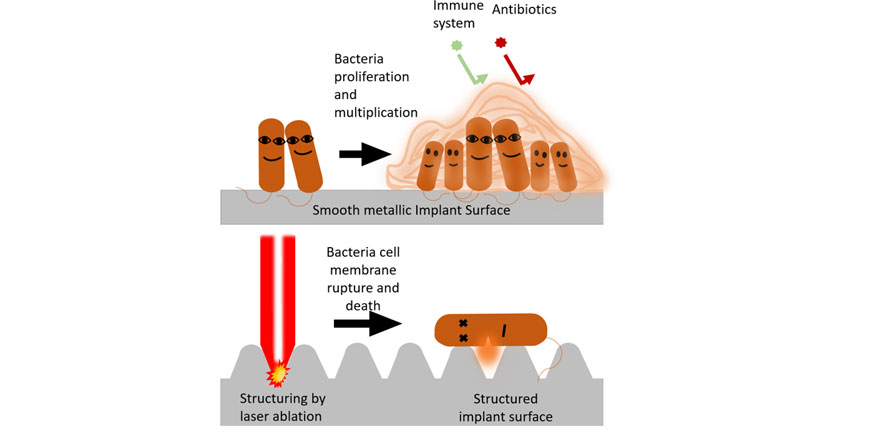The aim of this project is to design, fabricate and test nature inspired bactericidal metallic surfaces for biomedical implant applications.
Student |
Project overview
With the onset of antibiotic resistant bacteria strains, orthopaedic implant surgery failure rate and expenditure has increased greatly. The National Joint Registry records that around 200,000 hip and knee replacement surgeries are performed in the UK annually. It is estimated that infection treatment costs range from £20,000 to £100,000 per case with a mean infection rate of 1% of joint replacements implanted.
This healthcare and societal problem, usually treated from a medical perspective, can timely be treated from a manufacturing and surface engineering perspective after natural nanostructured surfaces (e.g. cicada wings, dragonfly wings etc.) were found to kill bacteria upon contact through a mechano-bactericidal mechanism reliant on topography.

Thus, the aim of this project is to design, fabricate and test nature inspired bactericidal metallic surfaces for biomedical implant applications.

